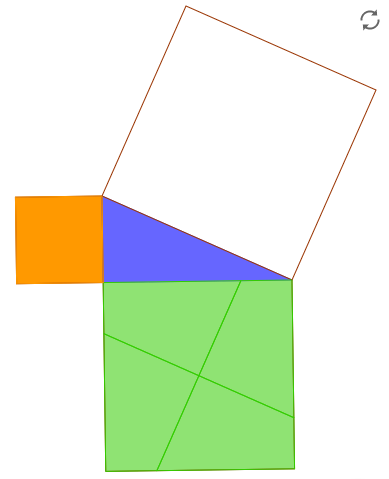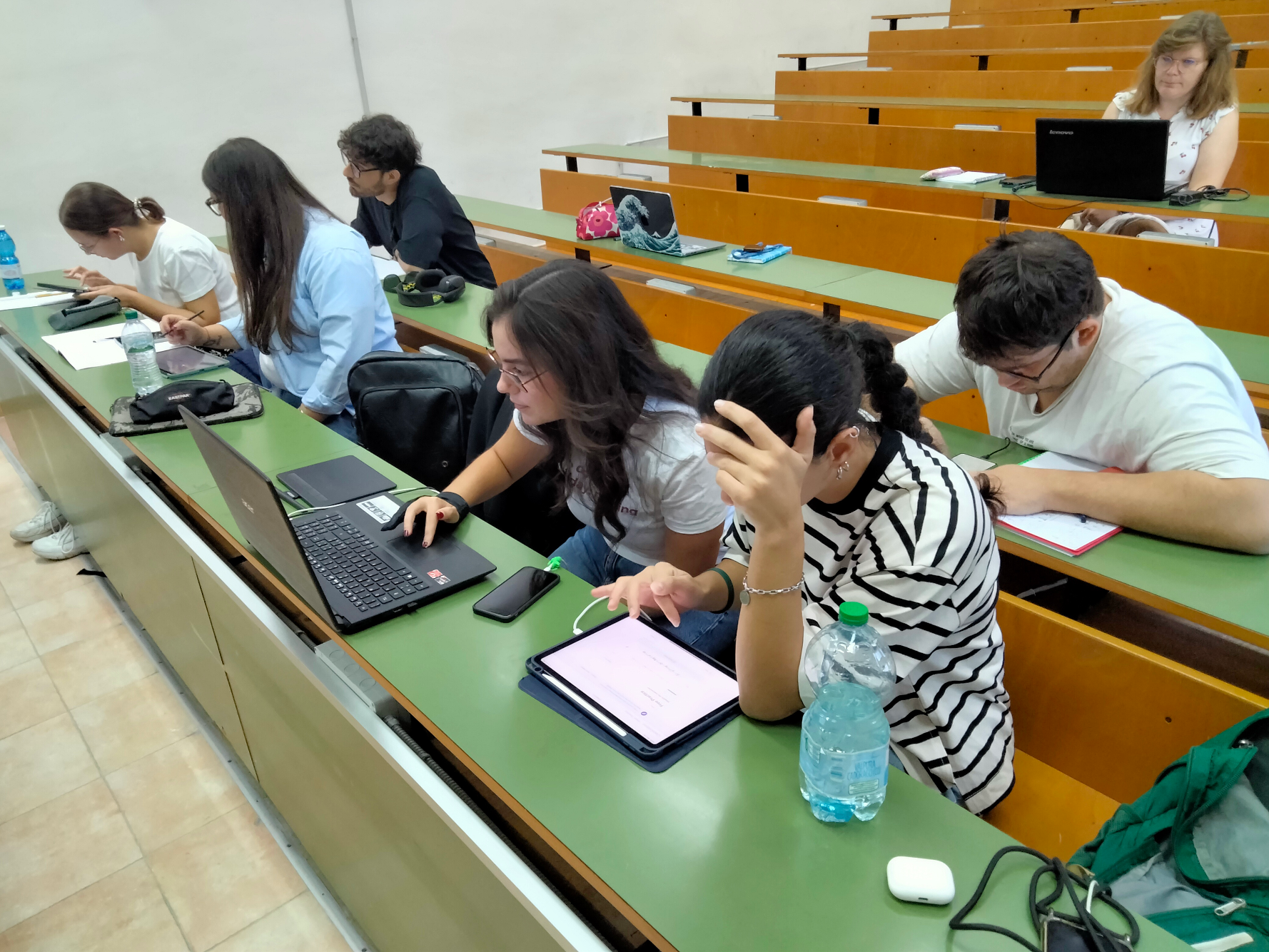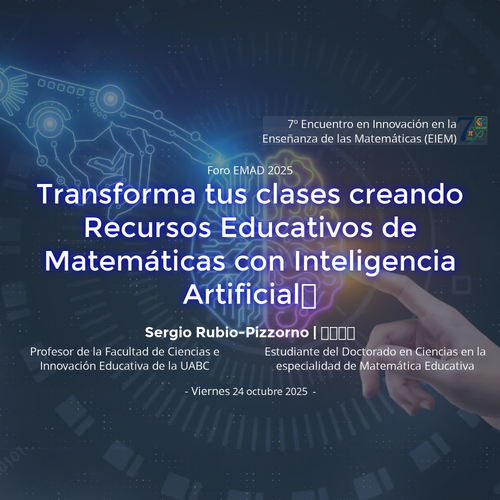Mathematical ideas dynamised:
Creating animation in GeoGebra with geometric transformations
- October 30th, 2024 -
Department of Mathematics
University of Bari Aldo Moro, Italy 🇮🇹
Sergio Rubio-Pizzorno | 🇲🇽🇨🇱
Phd student (last year) in Science with specialization in Mathematics Education
GeoGebra Ambassador
Center for Research and Advanced Studies (Cinvestav) - México 🇲🇽
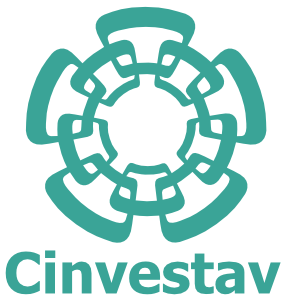

Department of Mathematics Education
Seminar

Créditos
Taller "Herramientas GeoGebra para la Educación en línea" por Sergio Rubio-Pizzorno se distribuye bajo una Licencia Creative Commons Atribución-NoComercial 4.0 Internacional.
Basada en una obra en https://slides.com/zergiorubio/2020-taller-11eical .
BY
NC
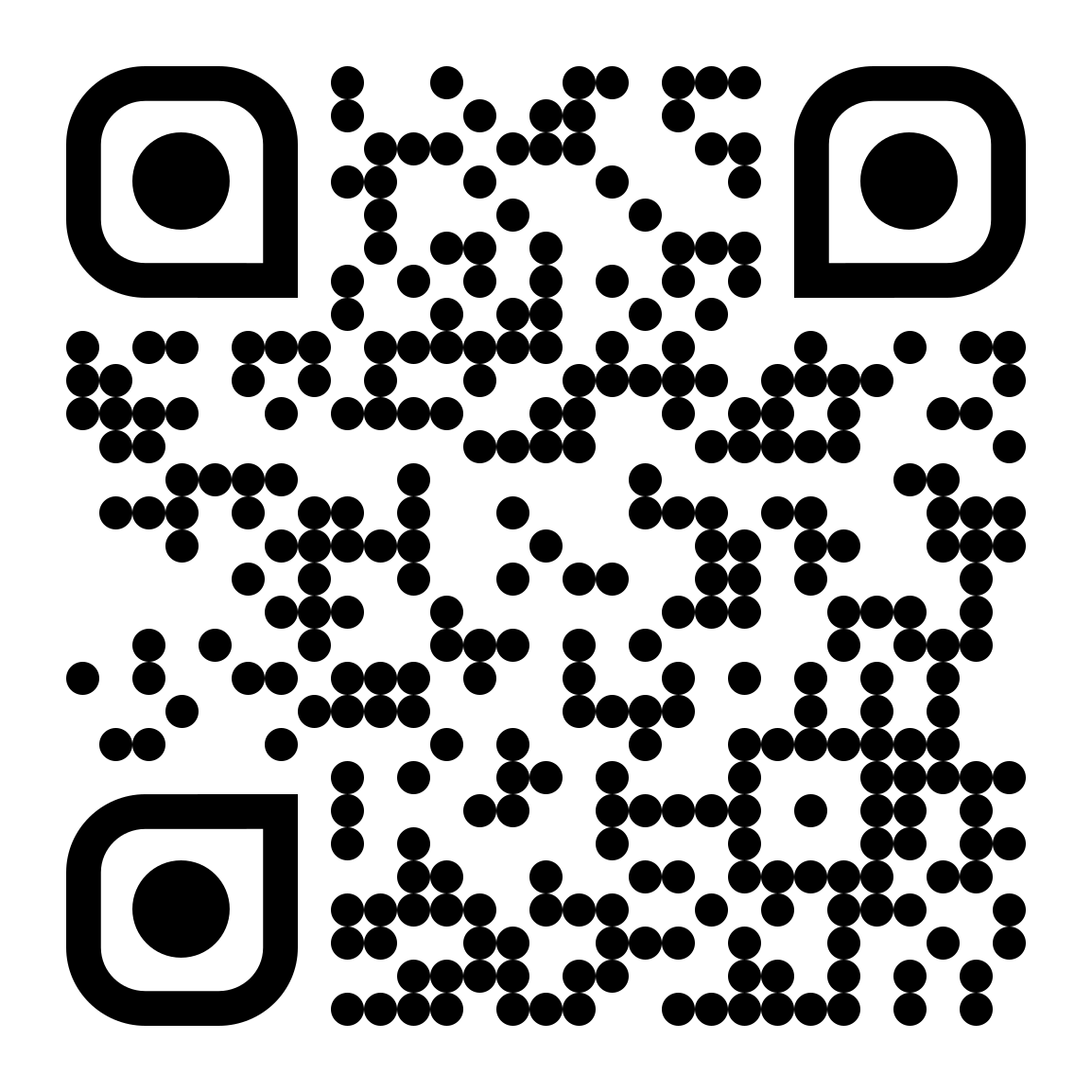
What is the important idea?
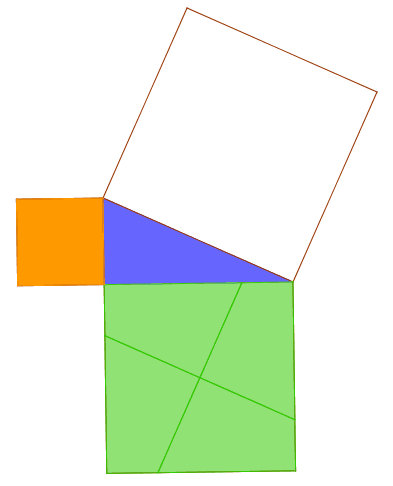
Translation
-
Open GeoGebra.
-
Change the view to Geometry.
-
Create a quadrilateral.
-
Create an arbitrary vector.
-
Translate the quadrilateral by the vector.
- ⚠️Do not close the windows⚠️
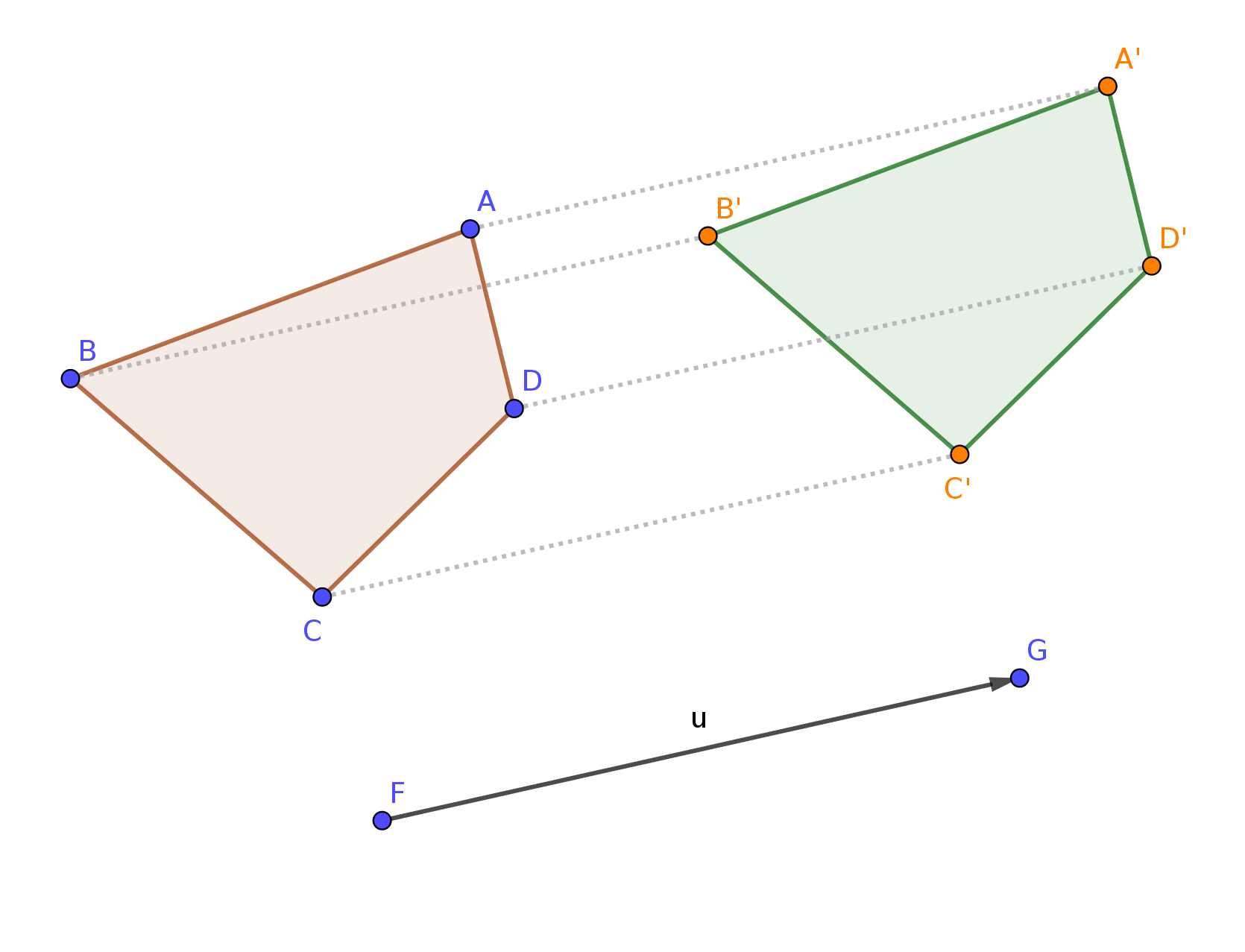
Rotation
-
Open (a new window of) GeoGebra.
-
Change the view
to Geometry. -
Create a quadrilateral.
-
Create a point outside the quadrilateral.
-
Rotate the quadrilateral around the point by an angle of 180° (counter clockwise).
- ⚠️Do not close the windows⚠️
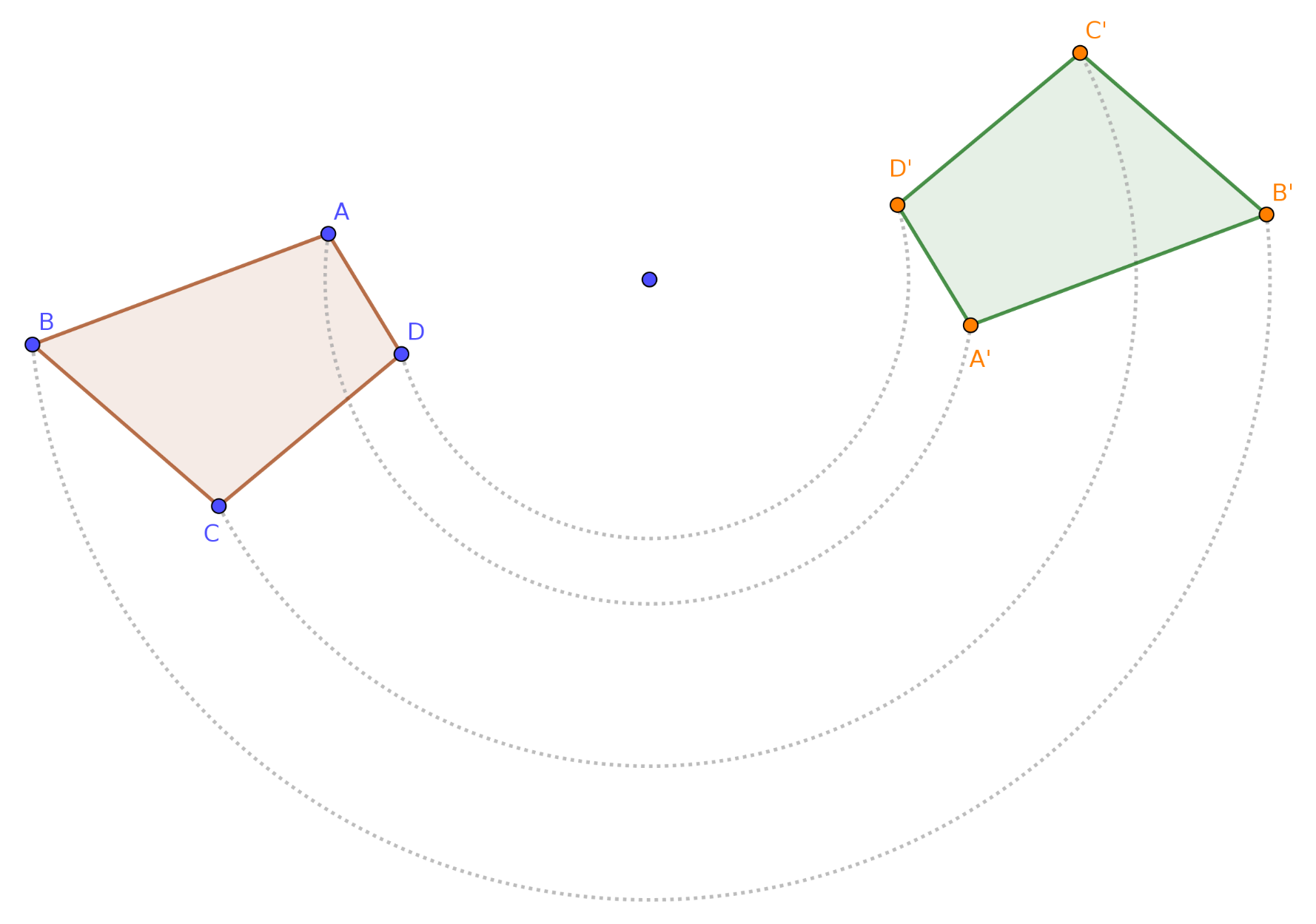
Static transformation


Static Dynamic transformation
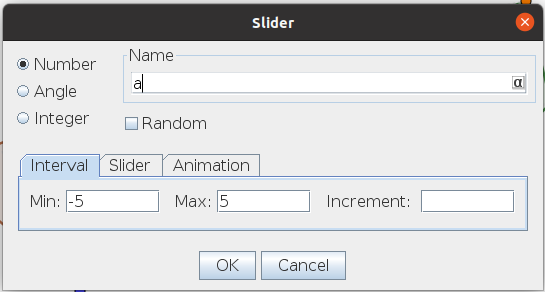
-
Go to the Translation GeoGebra file.
-
Create a slider:
-
Name: animate
-
Number.
-
Interval: 0 to 1.
-
Increment: 0.1
-
-
Show the Input Bar.
-
Animate the translation:
Translate [q1,u*animate] -
Change the value of the slider.
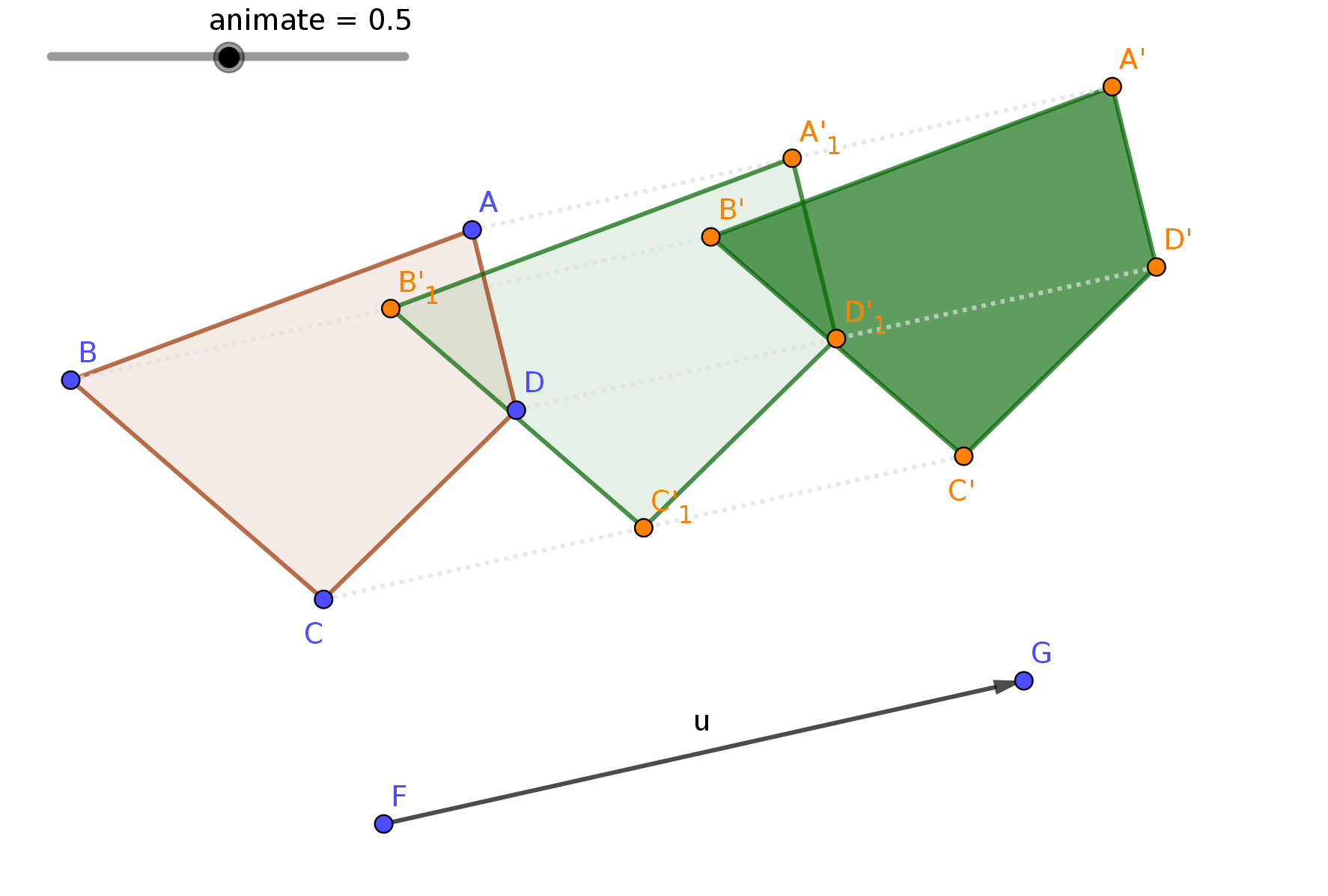
-
Go to the Rotation GeoGebra file.
-
Create a slider:
-
Name: animate
-
Angle.
-
Interval: 0° to 180°.
-
Increment: 1°
-
-
Show the Input Bar.
-
Animate the rotation:
Rotate [q1,animate,E] -
Change the value of the slider.
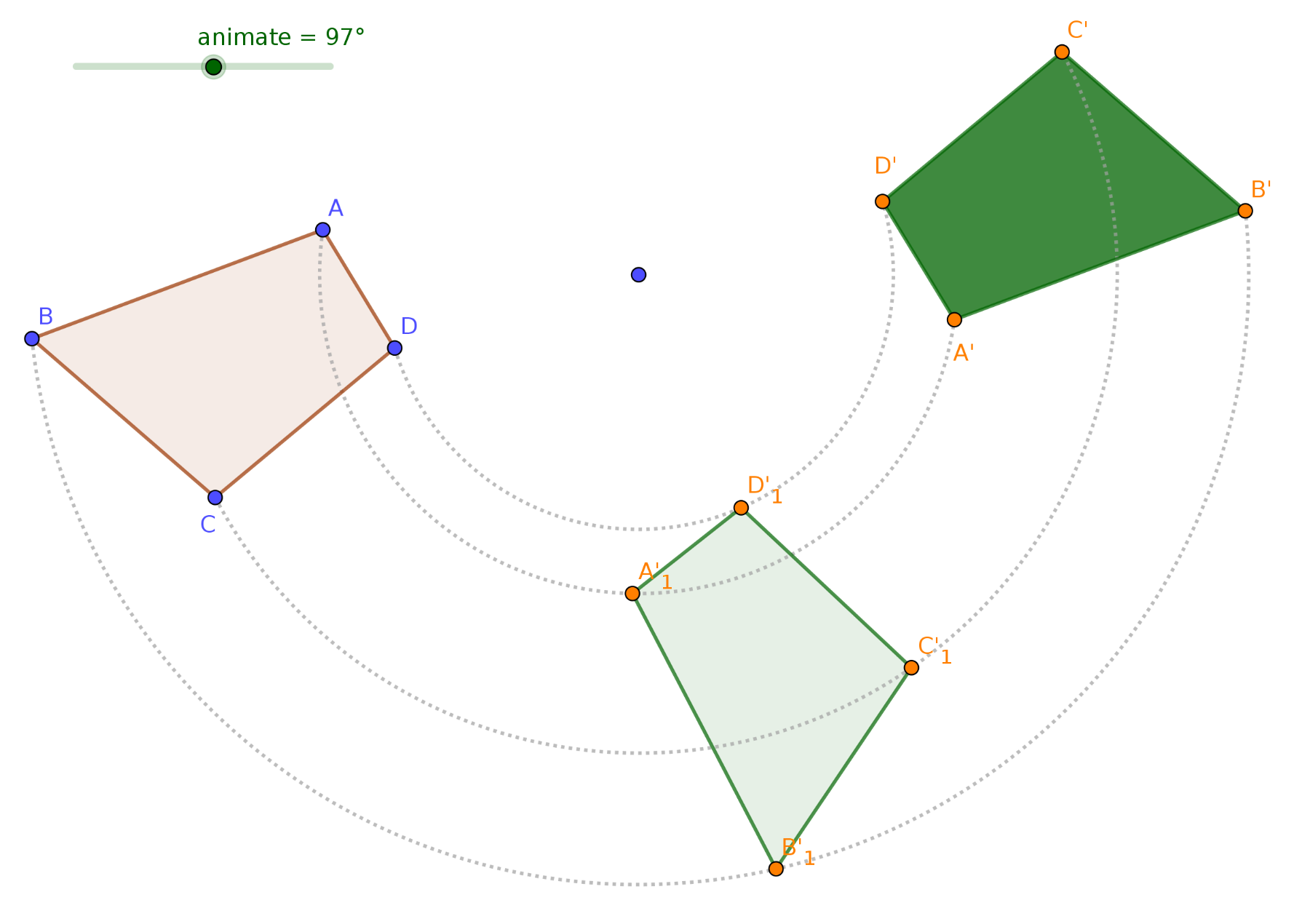
Basic animation
Basic Concatenated animation



-
Go to the Translation GeoGebra file.
-
Modify the animate slider:
-
Interval: 0 to 2.
-
-
Create a second vector.
-
Animate the second part of the animation:
Translate(q1', v * If(0 ≤ animate < 1,0,If(1 ≤ animate < 2, animate - 1))) -
Change the value of the slider*.
-
Create the SFX 📽️:
- Redo the first part on the animation.
- Modify the visibility of the objects.
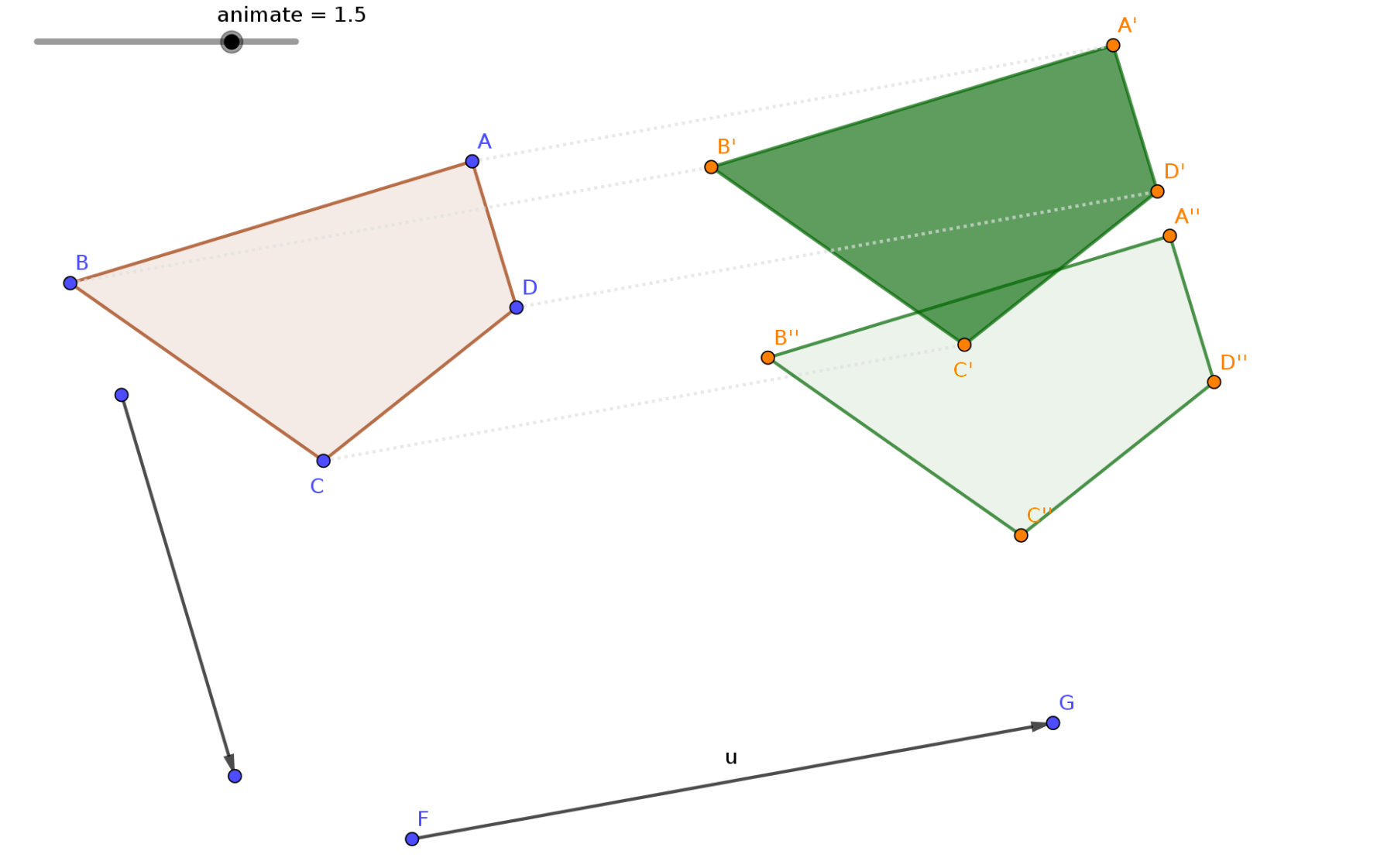
-
Open (a new window of) GeoGebra.
-
Change the view
to Geometry. -
Create a right triangle.
-
Create the squares on their sides.
-
Do the dissection.
- ⚠️Do not close the windows⚠️
-
Create a single polygon for each dissection.
-
Trace the necessary vector.
-
Modify the animate slider:
-
Interval: 0 to 5.5
-
-
Animate each dissection in a concatenated way.

Grazie mille!
Sergio Rubio-Pizzorno🇲🇽🇨🇱

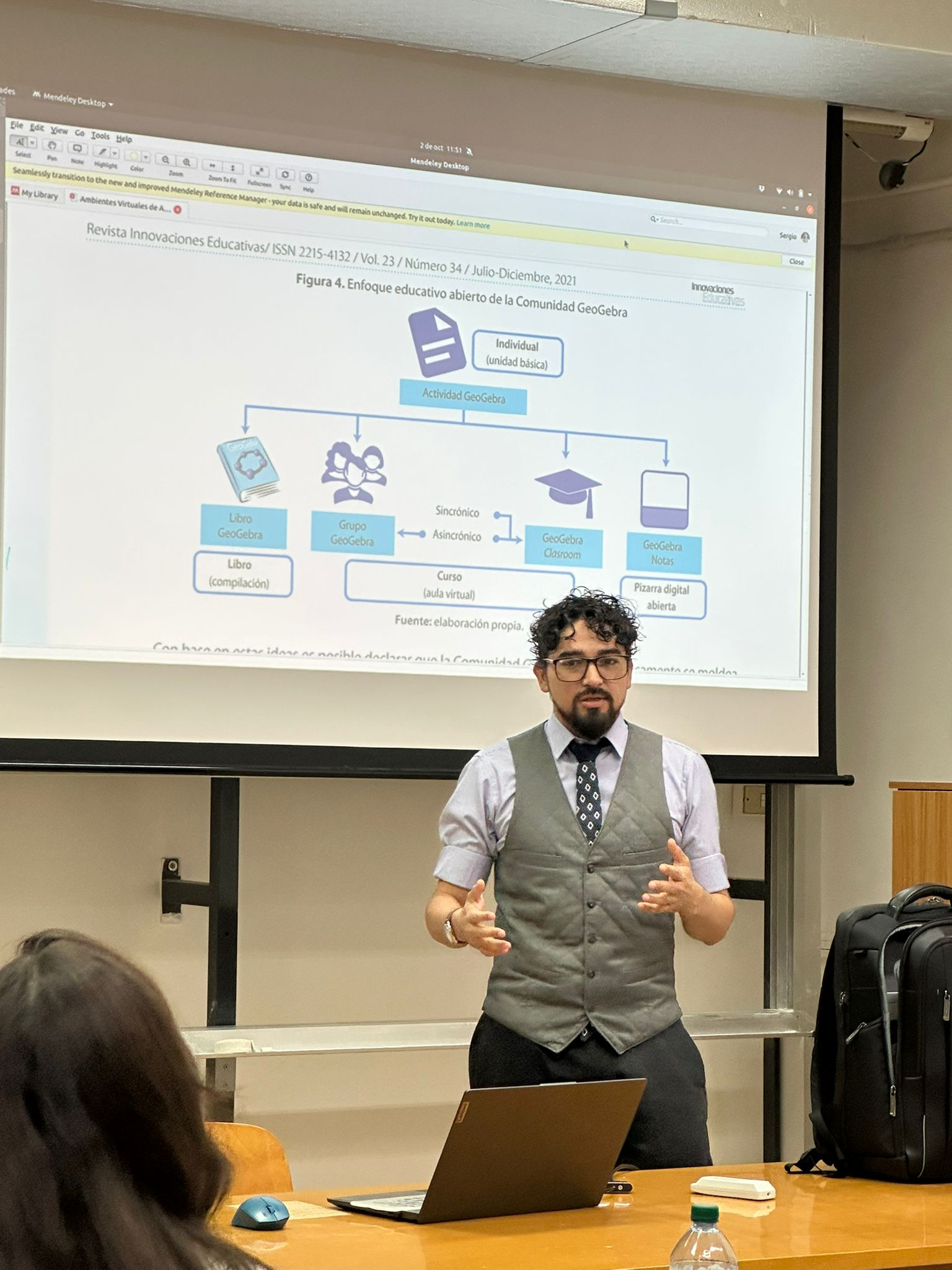
Mathematical ideas dynamised: Creating animation in GeoGebra with geometric transformations
By Sergio Rubio-Pizzorno
Mathematical ideas dynamised: Creating animation in GeoGebra with geometric transformations
[October 2nd 2024] GeoGebra tools to study Algebra. By Sergio Rubio-Pizzorno for the course NAME of the Prof. PhD Eleonora Faggiano, from the Department of Mathematics at the University of Bari Aldo Moro, (Bari, Italy🇮🇹).
- 669




